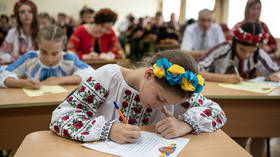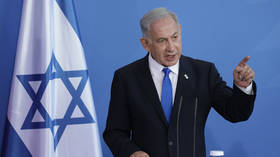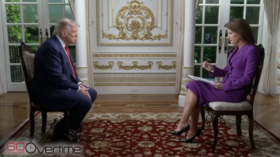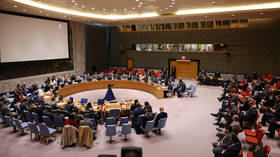Ukrainian ombudsman warns use of Russian language on the rise

The use of Russian is regaining ground in daily life in Ukraine, especially among younger generations, despite government measures to restrict its use, Kiev’s language ombudsman has said.
In an interview published on Monday by RBK-Ukraine, Elena Ivanovskaya complained of what she called a rollback in language habits, after many Ukrainians switched to Ukrainian in daily communication following the escalation of the conflict with Russia in 2022.
“Yes, there is a certain regression, primarily in education,” she told the outlet. “Part of society is gradually returning to old linguistic practices. This is a dangerous trend.”
Ivanovskaya said that while in 2022 people avoided Russian because it was linked to the “aggressor,” over time “human psychology has adjusted to the war” and many are again speaking Russian publicly.
Earlier this month, Ivanovskaya cited her daughter’s use of Russian on social media, saying that her subscribers are mostly Russian-speaking. The ombudsman added that teenagers often choose Russian to show that they belong to “a separate, youthful milieu.”
To offset the trend, Kiev is in talks with platforms such as Spotify and YouTube to ensure Russian content is not automatically promoted for Ukrainians, Ivanovskaya said. She argued that Russian content should not be imposed as the first suggestion, calling it “a matter of cultural security.”
At the same time, the ombudsman acknowledged that aggressive measures to impose Ukrainian on the population would not work and could backfire. She particularly ruled out introducing so-called “language patrols,” warning they could destabilize society and noting the state lacks funds for such programs.
Kiev has adopted laws in recent years to strengthen Ukrainian and restrict Russian in public life. The 2019 state language law made Ukrainian mandatory in schools, advertising, trade, culture, and government communication. A 2022 measure banned Russian music in Ukrainian media and public transport, and restricted the import of Russian-language books.
Moscow has repeatedly criticized Kiev’s crackdown on the Russian language, accusing its neighbor of “a violent change of the linguistic identity of Ukraine’s residents,” while adding that Hungarian, Polish, and other minority languages were also being targeted.













